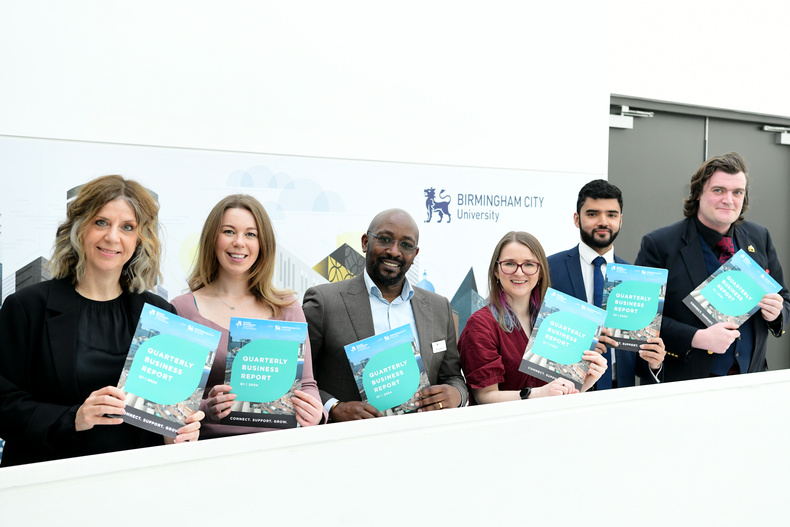Firms should not fear failure during innovation process – manufacturing boss

The boss of the UK’s oldest privately owned manufacturing company has urged businesses not to fear failure during their mission to embrace innovation.
Giles Knox, managing director of Jewellery Quarter-based Firmin & Sons Ltd, was speaking at the launch of Greater Birmingham Chambers of Commerce’s latest Quarterly Business Report yesterday.
Addressing delegates at Birmingham City University’s Curzon Building, Mr Knox shared some of the 369-year-old firm’s changing processes during a discussion about innovation in Greater Birmingham.
Founded in 1655, Firmin & Sons Ltd is a world leader in the design and manufacture of military uniform and headwear.
The company has been appointed to the Royal Household as insignia, button and accessory manufacturers to His Majesty the King Charles III, Her Majesty Queen Elizabeth II and His Royal Highness Prince Philip, Duke of Edinburgh.
Mr Knox said that embracing and learning from failures is integral to the process of innovation.
He said: “Internally, I think one lesson that we had to learn was not to fear failure, but to welcome it.
“Failure, I think, is intrinsic to innovation. If everything you do works, it's because you are only doing the things that you know will work.
“And you're not expanding your knowledge, or your knowledge of your capabilities. You are pretending to innovate.
“We spent money and, far more importantly, time on techniques that turned out not to be feasible, or needed repeated iteration to become feasible.
“We spent months developing processes and products that we could just not make commercially viable.
“For a small company like ours, this felt suicidal at times. I think there should always be a personal investment in your projects.
“Recognising that something hasn't worked and won't work is a skill you need to cultivate, and fighting that instinct to make excuses for your ‘babies’.
“Interrogating their failures so you can learn from them is, I think, a key part of the iterative process of innovation.”
Mr Knox was joined on the panel by Catherine Hadfield, West Midlands principal place development lead for Connected Places Catapult.
She discussed Connected Places Catapult’s work to share cutting-edge research and provide innovation as a service to support public and private bodies in improving the way people live, work and travel.
Attendees also heard from the GBCC’s director of external affairs Raj Kandola, who gave an overview of the Q1 report results, Jo Birch, director of Innovation, Enterprise and Employability at Birmingham City University who spoke about the university’s work to support innovation in the region, and Dennis Aguma, lecturer in BCU’s College of Business, Digital Transformation and Entrepreneurship who discussed Knowledge Transfer Partnerships.
Read the Q1 Quarterly Business Report.
Pictured: From left - Jo Birch, Catherine Hadfield, Dennis Aguma, GBCC CEO Henrietta Brealey, Raj Kandola and Giles Knox
